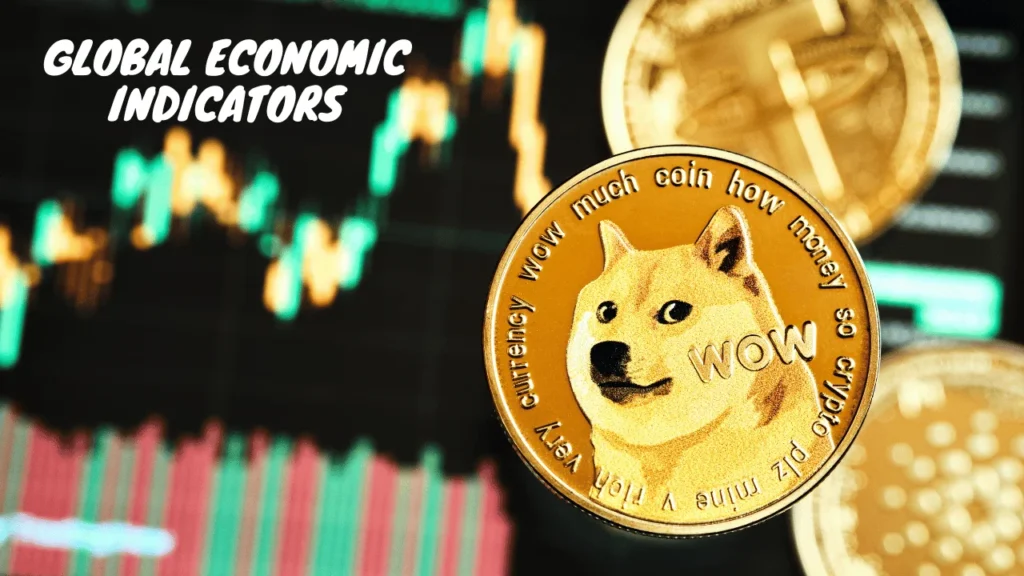The Value of Cryptocurrency has been a game-changer in the world of international finance, altering the nature of both transactions and asset management. Cryptocurrencies are digital currencies that use cryptography for security. They are both a medium of exchange and a chance for speculative investments, unlike traditional currencies. Their value is not tied to anything tangible or regulated by any one entity, so their prices are subject to wild fluctuations in response to supply and demand. As they traverse the intricate and quickly changing digital currency landscape, investors and regulators must comprehend these dynamics.
Cryptocurrency Market Dependency

How Investor Attitudes Affect the Value of Cryptocurrencies?
Market sentiment among investors is a key factor that frequently determines the direction of cryptocurrency prices. The value of a cryptocurrency can rise sharply in response to positive news regarding its potential or widespread adoption, and fall precipitously in response to negative news. An example of this would be the dramatic increase in Bitcoin’s price that occurs when a large company announces it will accept Bitcoin as payment.
Regulatory Impact on Cryptocurrency Prices
The price of cryptocurrencies can be significantly affected by regulations. Market confidence or uncertainty might result from a country’s announcement of new regulatory measures. The price of cryptocurrencies can fluctuate wildly, for instance, if big economies like China or the US crack down on their usage or trading.
Technological Advancements in Blockchain
Advancements in blockchain technology can also affect cryptocurrency values. Investment interest and, perhaps, a rise in the value of blockchain-dependent cryptocurrencies might result from innovations that make the technology more scalable, efficient, or secure. On the flip side, investor confidence can be eroded and prices dropped due to technological setbacks or failures.
Decentralized Nature of Cryptocurrency Markets
Since cryptocurrency markets are not controlled by a single entity, they are less likely to be manipulated. The downside is that news and events happening in one region can have an immediate impact on cryptocurrency markets all over the world, which can increase volatility. Because of how interdependent the world is becoming, keeping up with current events and trends in the market demands a global view.
Supply Dynamics in Crypto Markets
In the cryptocurrency market, as in any other, the equilibrium between supply and demand is the primary factor determining price. Cryptocurrencies like Bitcoin, which has a maximum supply of 21 million coins, can experience price increases due to rising demand and limited supply. The inverse is also true: if demand for a cryptocurrency drops or the market becomes oversaturated with it, its price will likely drop.
Global Economic Indicators

How Global Economic Indicators Influence Cryptocurrency?
The larger economic climate does not exist in a vacuum, and neither do cryptocurrency markets. Investor confidence and behavior can be influenced by global economic indicators like inflation, unemployment, and GDP growth rates, which in turn can affect cryptocurrency investments. In times of economic uncertainty, for instance, some may seek refuge in cryptocurrency as a protection against more established forms of money transfer.
Geopolitical Stability and Cryptocurrency Adoption
The markets for cryptocurrencies are also susceptible to the influence of geopolitical events. As a way to avoid government controls or deal with unstable local currencies, people may turn to cryptocurrencies when there is political unrest, economic sanctions, or other geopolitical tensions.
Business Adoption Rates
The value of cryptocurrencies is highly dependent on how quickly both consumers and businesses embrace them. Prices for cryptocurrencies may rise as their practical worth grows and more businesses start accepting them as payment. Cryptocurrency demand is driven by increased consumer interest and investment, which in turn influences market prices.
Volatility of Cryptocurrency Markets
Crypto markets’ intrinsic volatility poses risks and opportunities for investors. Keeping up with market conditions and trends is essential for investors to manage their investments effectively, as rapid price changes can lead to significant gains or losses.
Scalability and Security in Blockchain In order for cryptocurrencies to maintain their popularity and value, blockchain technology must undergo significant improvements in scalability and security. When cryptocurrencies become more scalable, enabling faster transactions at lower costs, they become more practical for everyday use, which could lead to an increase in their value.
Impact of Technological Breakthroughs on Cryptocurrency
Crypto Value
If blockchain technology is enhanced, for example by implementing more efficient consensus algorithms, the value of cryptocurrencies could skyrocket. Cryptos are becoming more attractive for both daily use and investment as a result of these upgrades, which decrease transaction fees and speeds. As blockchain technology improves and becomes more scalable, it has the ability to increase the market value of cryptocurrencies that are linked to it by making them more appealing and practical.
Security Innovations
The cryptocurrency community places a premium on safety. The trust of investors is directly affected by innovations that strengthen the safety of blockchain networks and digital wallets. Investors and users are reassured when security protocols are strengthened, which could result in higher prices and more purchases. In contrast, trust can be swiftly eroded and market prices sent tumbling when security breaches happen.
Integration of Cryptocurrencies into Mainstream Financial Systems
Cryptocurrencies are becoming more integrated into conventional financial systems as blockchain technology develops further. In this context, “blockchain” can mean anything from the adoption of blockchain technology by banks to the trading of Bitcoin futures on large exchanges. By bringing cryptocurrencies one step closer to the established financial ecosystem, these integrations do double duty: they legitimize cryptocurrencies and stabilize their value.
Regulatory Changes and Their Influence on Crypto Markets
Anticipating Regulatory Shifts
News about regulations has a profound effect on the cryptocurrency market. Speculative investing, which increases market volatility, is a common result of investors trying to foresee changes in regulations. Investors who make adjustments to their portfolios in anticipation of possible changes in regulations can gain a strategic advantage.
Global Regulatory Harmony and Discord
Cryptocurrency regulation can be a unifying force or a source of market discord depending on the country’s approach. Increased market stability and investor confidence could result, for example, from leading economies adopting similar regulatory frameworks. Cryptocurrency prices and market stability are susceptible to arbitrage opportunities and market segmentation caused by large regulatory gaps.
Impact of Regulatory Clarity on Institutional Investment
As they strive to maximize returns while complying with legal standards, institutional investors are especially attuned to regulatory environments. When regulations are clear and supportive, institutional investors can pour a lot of money into cryptocurrencies, which increases their value and market cap. The flip side is that regulatory ambiguity or animosity can discourage these massive investments, which in turn limits market growth.
Role of Market Speculation and Media
Media Influence on Crypto Valuations
When it comes to the cryptocurrency markets, the media is a major influencer on investor sentiment. When the media portrays a topic in a positive light, it can boost interest and demand, while negative coverage can cast doubt and fear into the minds of the public. If you want to be a good price forecaster, you need to know how media trends might affect market sentiment.
Speculative Bubbles and Market Corrections
When investor enthusiasm, rather than underlying economic fundamentals, drives cryptocurrency prices, a speculative bubble is likely to form. Sudden market corrections can follow these bubbles’ astronomical price spikes. Recognizing the signs of a bubble can help investors make more informed decisions during volatile market phases. Strategic.
Trading and Market Manipulation
Some cryptocurrency markets can be manipulated by large players due to their low market capitalization and lack of liquidity. These entities can cause artificial price movements through their strategic trading practices. Investors should be alert to these practices so they can steer clear of pitfalls and make the most of real opportunities.
Must Check: Why Is Crypto Crashing and Will It Recover?
FAQs
Q1: How does media coverage affect cryptocurrency prices?
A1: Positive media coverage can boost demand and prices, while negative news can lead to declines due to increased fear and uncertainty among investors.
Q2: What role does regulatory clarity play in attracting institutional investors?
A2: Clear and supportive regulations can encourage institutional investments, significantly boosting the market value of cryptocurrencies.
Q3: Can technological advancements in blockchain increase cryptocurrency values?
A3: Yes, advancements that enhance scalability, efficiency, or security can attract more users and investors, increasing the value of cryptocurrencies.
Q4: How do speculative bubbles affect the cryptocurrency market?
A4: Speculative bubbles can cause rapid price escalations followed by severe market corrections, affecting overall market stability.
Q5: Are cryptocurrencies prone to market manipulation?
A5: Yes, due to their often low liquidity and market cap, some cryptocurrencies can be susceptible to manipulation by large stakeholders.
Conclusion
The Value of Cryptocurrency are highly sensitive to market circumstances, which in turn are affected by a myriad of factors, including but not limited to global economic indicators and technological developments. Stakeholders must remain alert and knowledgeable when investing in or regulating this digital asset class because each of these factors significantly influences the dynamics of the cryptocurrency markets.

Brandy Stewart, an enchanting wordsmith and seasoned blogger, weaves compelling narratives that transport readers to uncharted territories. Infused with perceptive viewpoints and dynamic storytelling, Doris exhibits a command of language that enthralls both hearts and minds, leaving a lasting mark on the literary panorama.

